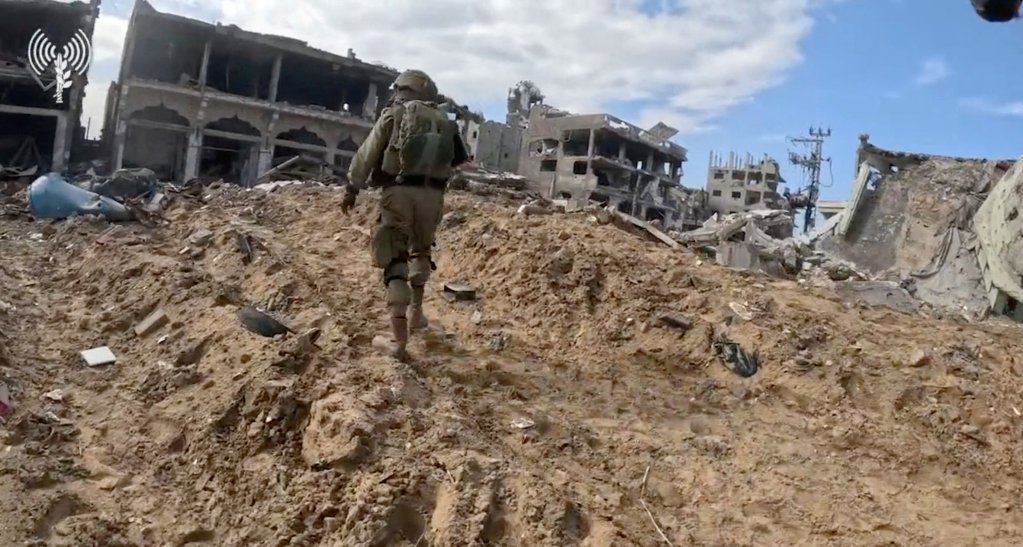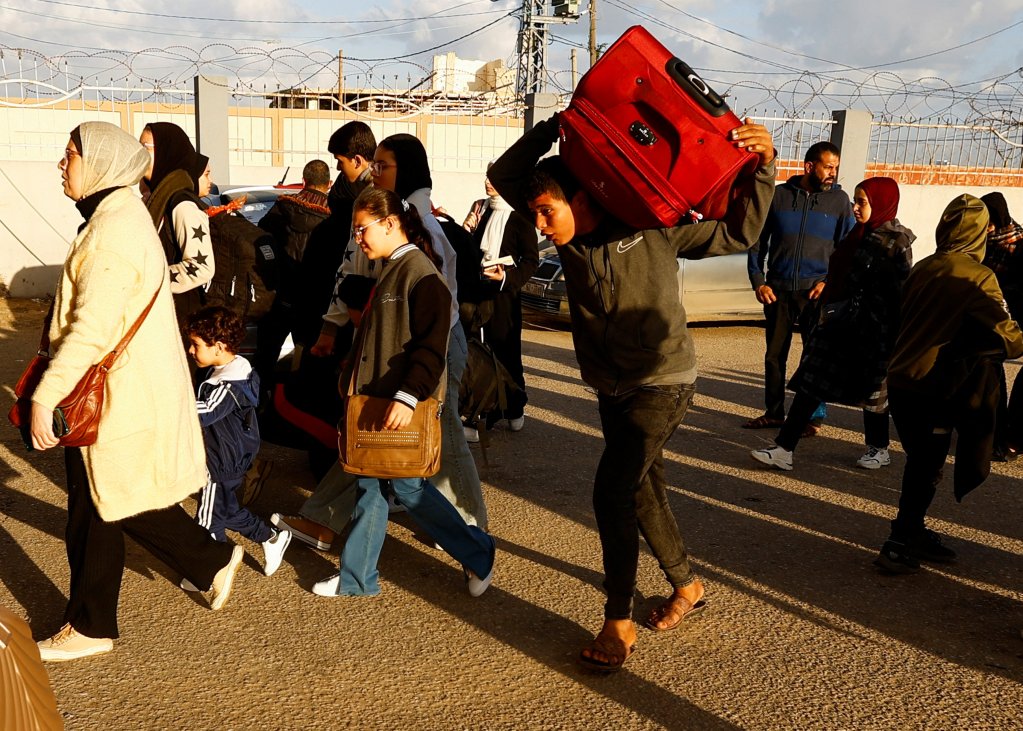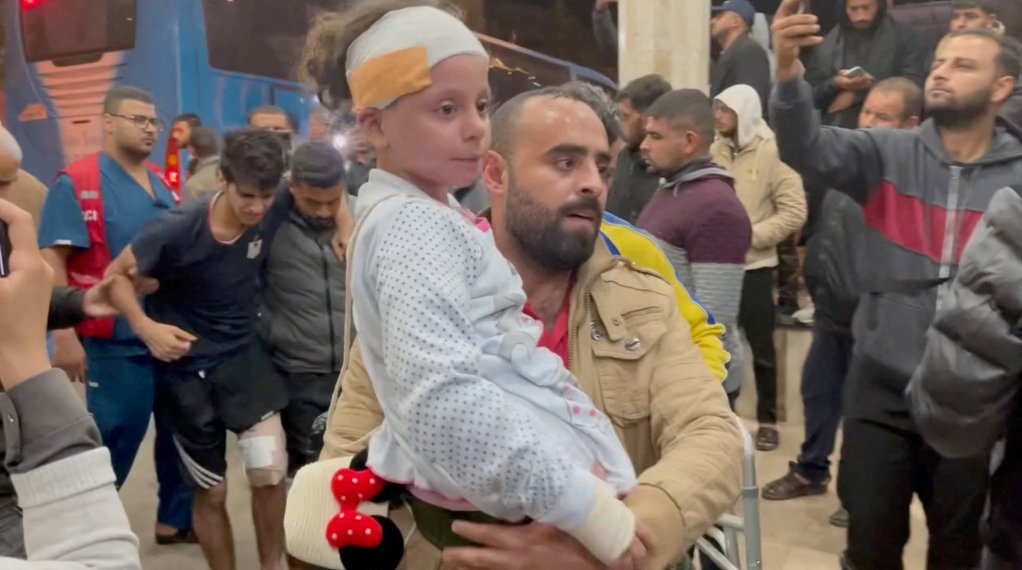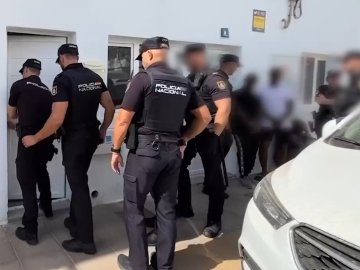Gazans in Turkey: ‘We cannot return to Gaza, where will we go?’
Source: InfoMigrants: reliable and verified news for migrants – InfoMigrants
The Israel-Hamas war has consequences for Gazans living abroad, particularly in Turkey, one of the few countries to grant tourist visas to Palestinians. Faced with tougher legislation, the majority of Palestinians in Turkey are struggling to renew their permits.
“I left Gaza about two months ago. I went to Turkey in search of a better life. I was thinking about either settling in the country or trying my luck towards Greece. But now I’m stuck in Istanbul. I can’t return to Gaza because of the war, and I can’t get a residence permit in Turkey,” Khaled* told InfoMigrants.
“All my attempts to reach Greece have failed. Where will I go? What will my fate be after the end of this war?”

Khaled is 33 years old. This Gazan, a graduate in electronics and computer programming, has never found a job in the Gaza Strip, where the unemployment rate reaches 74% among graduates, according to data from the Palestinian Central Bureau of Statistics for the year 2022.
“I haven’t had a normal day for 17 years because of the siege imposed on Gaza,” he said. “In Gaza, there is no electricity, no drinking water, no freedom of movement and no future.”
Two months ago, the young man decided to flee the impoverished enclave and try his luck in Turkey, one of the rare countries to grant Palestinians tourist visas they can convert into renewable tourist permits.
Tighter Turkish legislation
Since his arrival in September, Khaled has already attempted to reach the Greek islands in the Aegean Sea. During both his attempts, the Turkish coast guard intercepted his boat and returned it to Turkey.
The young man says he has no other choice: it is impossible for him to return to Gaza, under Israeli strikes, and also impossible to stay in Turkey.
Since the renewed conflict in Gaza, Turkey has tightened the conditions for obtaining residence permits. The authorities no longer issue tourist permits to newly arrived people.
They have also reduced the duration of residence permits: they are now renewed for a maximum of six months or one year, compared to two years previously. These permits allow Palestinians to reside in Turkey, but not to work or own property, forcing many to take jobs paid under the table.
Permit renewals now require more documents: a proof of rent payment or subscription to housing insurance. Many Gazans contacted by InfoMigrants said they had no choice but to falsify their documents to renew their residence permits.

Khaled, like many “Turkey Gazans”, therefore found himself in an impasse. For Abdullah too, the anguish is permanent. The 26-year-old man, who arrived in Turkey in 2017 and obtained a tourist and then student residence permit, is unable to renew his papers.
“I waited for hours in queues [for special offices for foreigners]. But there are too few employees. All of this is cruel. We just want to live legally and integrate into the country. All the Palestinians I know in Turkey are in the same impasse as me,” he says.
“My sister, for example, has lived here with her family for more than five years. Her children only speak Turkish, they attended Turkish schools and have fully integrated. However, she cannot renew her status, the authorities refused her request for a humanitarian residence permit. Her children can no longer go to school. We have no idea what our future will be.”
Racism and the high cost of living
Souad* shares the same fears. This retiree left the Gaza Strip after teaching there all her life and has been in Turkey for the past six years.
“My retirement pension allows me to live in Istanbul. But life has become very complicated in the last two years because of racism and the high cost of living,” she said. “I always told myself that I would return to Gaza one day because I have a house there, but with the war, I lost everything. And even so, what would I do there without a health infrastructure, without healthcare services? With my old age, I will no longer be able to return… Where will I go now? Will I have to experience fleeing again, forced displacement? And if I leave, which country will welcome me ?” Souad told InfoMigrants.

Khaled also evokes the fear of forced displacement for his family trapped in the enclave.
“I spoke with my father about a week ago on the phone. He told me that he would not leave our house and that he would not agree to relive the displacement that my grandfather experienced before him,” he says. “I know that my father finally left his house, he went to the south of the Gaza Strip. But I have no more news. I feel helpless and lost.”
The current bombing of Gaza by Israel was triggered by the bloody attack by the Palestinian Islamist Hamas group on October 7 on Israeli soil. In retaliation, Israel vowed to “annihilate” Hamas, shelling the besieged territory where 2.4 million Palestinians are crowded.
According to the latest report from the Hamas government, over 13,000 people have been killed in bombings on the Gaza Strip since the start of the war, including more than 5,500 children and 3,500 women, mainly civilians. On the Israeli side, the Hamas attack left 1,200 dead, mainly civilians killed on October 7, according to Israeli authorities.
*First names have been changed
The original article: belongs to InfoMigrants: reliable and verified news for migrants – InfoMigrants .




